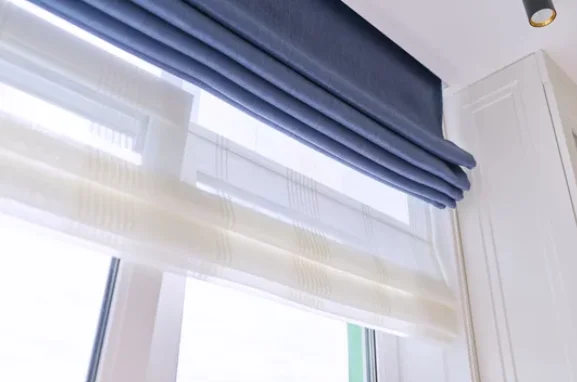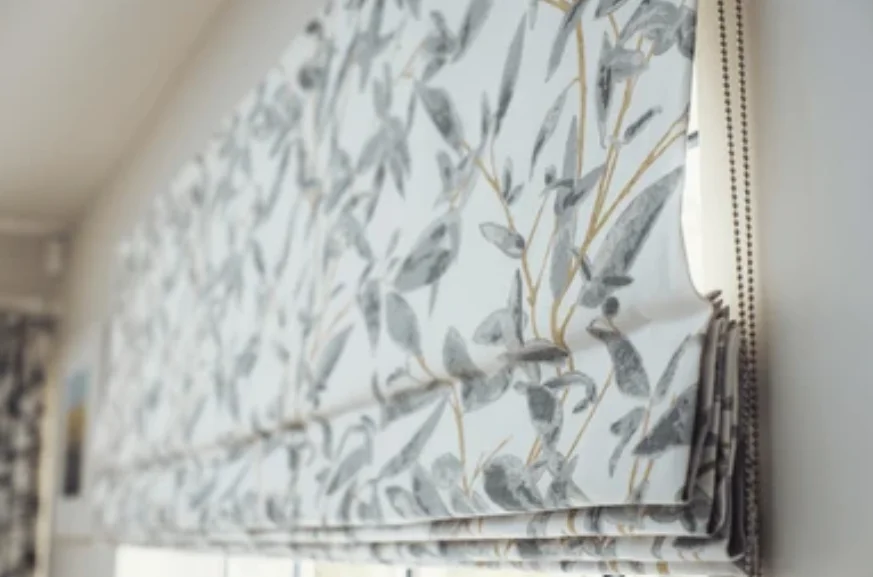Greetings, window enthusiasts! Have you ever wondered about the art of measuring for Roman shades? Fear not – we’re here to simplify the process. Grab a cup of tea and let’s dive into the world of measuring mastery!
Roman shades, with their timeless elegance, have become a popular choice for window treatments. Achieving the perfect fit is crucial for both functionality and aesthetics.
In this guide, we’ll walk you through the process of measuring for Roman shades, ensuring a seamless and custom look for your windows.
Importance of Proper Measurement
Proper measurement is the foundation of a well-fitted window treatment. It not only enhances the overall appearance but also ensures that the shades function correctly, providing the desired level of privacy and light control.
Gathering Necessary Tools
Before you start measuring, gather the necessary tools:
Steel Measuring Tape
Pencil
Paper
Having these essentials on hand will make the process smoother and more accurate.

Measuring Width and Height
Begin by measuring the width of the window at the top, middle, and bottom. To make sure your fit is comfortable, record the shortest measurement. For height, measure from the top of the window frame to the desired endpoint, whether it’s the windowsill or the floor.
Considering Inside Mount vs. Outside Mount
You’ll need to decide if you want an internal or a external mount. Inside mounts provide a clean, streamlined look, while outside mounts can make windows appear larger.

Calculating Fabric Requirements
To calculate the fabric needed, use the formula:
Fabric Width = (Window Width + 4 inches ) × Number of Folds
This formula ensures there’s enough fabric for the folds, creating a polished appearance when the shades are raised.
Choosing the Right Style
Consider the style of Roman shade that complements your window type—flat, hobbled, or relaxed. Each style has its own unique appeal, enhancing the overall aesthetic of the room.
Selecting the Best Material
Roman shades come in various materials, including linen, cotton, and bamboo. Choose a material that aligns with your preferences and the room’s décor.

Common Mistakes to Avoid
Avoid common measurement mistakes, such as forgetting to account for window trim or assuming all windows in a room are the same size. Before you buy anything, make sure your measurements are correct.
Maintenance and Cleaning Tips
Regularly dust Roman shades with a feather duster or a soft brush attachment on a vacuum. For deeper cleaning, follow the care instructions provided with the shades.
Enhancing Aesthetics with Accessories
Consider adding decorative elements like valances, trims, or tassels to enhance the aesthetic appeal of your Roman shades.
Conclusion
Measuring for Roman shades is a straightforward process that, when done correctly, ensures a perfect fit and enhances the overall appearance of your windows. Take your time, follow the steps carefully, and enjoy the timeless beauty and functionality that custom Roman shades bring to your living space.
Frequently Asked Questions (FAQs) on How to Measure for Roman Shades
How often should I clean my Roman shades?
Aim to dust your Roman shades regularly and perform a deeper clean as needed, depending on the environment.
Can I install Roman shades myself?
Yes, with careful consideration of the manufacturer’s instructions, many individuals successfully install Roman shades on their own.
What’s the difference from inside to outer mount?
Inside mount shades fit inside the window frame, while outside mount shades are mounted on the wall or window trim, covering the entire window.
Do Roman shades provide privacy?
Yes, Roman shades can provide varying levels of privacy depending on the material and style chosen.
Can I return custom Roman blinds if they don’t fit?
Check the store’s return policy before purchase. Many retailers allow returns or exchanges for custom-made items if they don’t meet your expectations.

